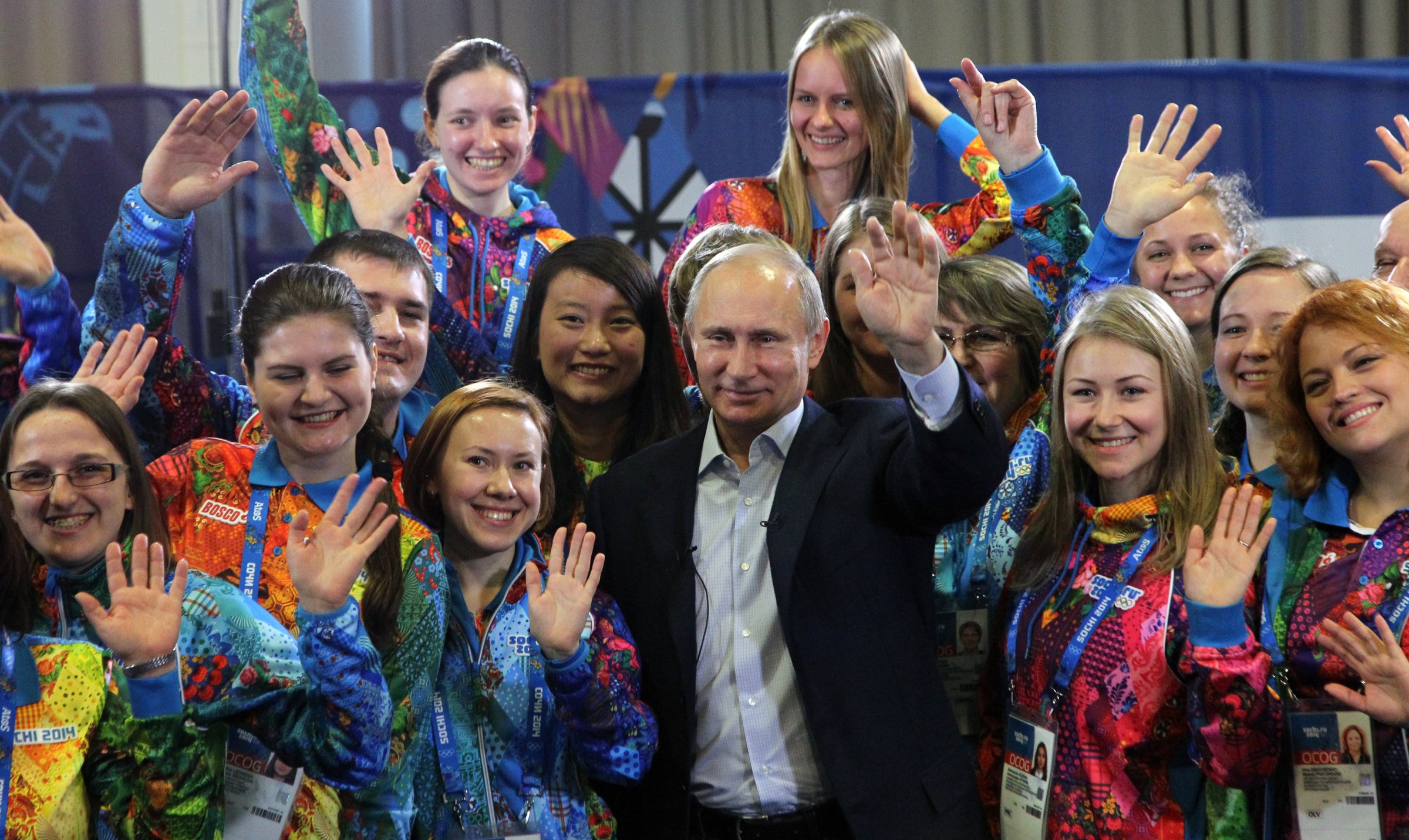
If you’re a sponsor, a spectator, or Vladimir Putin himself, you better brace yourself for the Sochi Olympic Games. Between the security risks, violence in neighboring Ukraine, protests from the international community and the staggering price tag, Sochi has earned its status as the most geopolitically interesting Olympics since 1980 (incidentally, the last time the Games were held in Russia). But that’s not an honor anyone would want. To top it all off, given the erratic behavior from Putin and the Kremlin of late, expect the unexpected at the 2014 Olympics.
It’s impossible to put a percentage on the risk of terrorism at this year’s Games. But suffice it to say, those with brand and sponsorship exposure in Sochi are vastly more concerned than they have been for any other Olympics in recent memory. There are known threats from known terrorist groups. Back in July, the leader of a Chechen separatist organization pledged “maximum force” to undermine the Sochi Games. On January 19th, two men with explosives released a video warning Putin to expect a “present” at the Olympics. These warnings come amidst a spree of recent bombings in nearby Volgograd. While Putin has guaranteed strict security in Sochi, it would come as no surprise if there are terrorist incidents elsewhere in Russia during the Olympics—and a strike in Sochi itself cannot be ruled out.
Exacerbating this issue is a severe lack of trust between Russia and the U.S. U.S. involvement in the security preparation for the 2004 Athens Olympics began after the events of 9/11. The Americans gave $35 million in security assistance—and many multiples of that figure via in kind expertise, equipment, and physical support—with input from about 20 different entities and offices across various U.S. agencies (let alone the assistance from European powers). For Sochi, Putin’s pride and bravado leave him unwilling to accept any substantial outside help. Russia has asked for terrorist-tracking surveillance technology that the U.S. has refused to share with a country it doesn’t trust. The main security agreement between the U.S. and Russia? They’ve agreed to try and maintain a dialogue throughout the Games; American Rear Admiral John Kirby said he “would describe it more as a check-in call.” In many ways the American relationship with Russia was warmer and more trusting under Gorbachev after 1988 with perestroika and glasnost than it is today.
This bravado from Putin has been on display in spades over the past year. In his dealings with the West on Syria and its chemical weapons (including his notorious New York Times op-ed, published on September 11th, no less) and in his decisions to welcome Edward Snowden, free rival Mikhail Khodorkovsky and Pussy Riot, and bail out Ukraine, we’ve seen Putin excel at doing what’s best for Putin. His actions are increasingly unpredictable.
The costs and corruption in Sochi have been staggering. Remember the scandalously expensive 2002 Salt Lake City Winter games? They cost $1.3 billion. Russian organizers originally estimated that the Sochi Winter Olympics would cost about $12 billion. As accusations of corruption mount, the total cost of the Sochi Games, now estimated at about $51 billion, will exceed the cost of all previous Winter Olympic Games combined. Much of that money has enriched a handful of Russia’s elites, with no prospect for return on investment for the average Russian citizen.
Ukraine is a potential geopolitical flashpoint. The country is in its current state partly because of Russia’s historical tendency to shut off natural gas to its neighbor whenever Kiev tacked too far from Russia toward integration with the European Union. Frustration with the previous futile leadership helped get Viktor Yanukovych elected president. When protests flared up in November, it was Putin’s $15 billion bailout that gave Ukraine an economic lifeline—with the quid pro quo of being increasingly shackled to Russia. Who else but Putin could unilaterally take $15 billion his own country’s pension system to bail out a neighbor with no pushback? Who else would want to? Today, protests are building once more in Ukraine; we are not so far from civil war. There are reports of plainclothes special forces from Russia arriving in Kiev to support a very embattled President Yanukovych—a man who has already used violence against his people. What happens if Ukraine explodes during the Olympics? It has the potential to get really ugly for Putin. Remember the ’08 Beijing Olympics, during which Russia invaded Georgia? Putin will certainly not do anything of the sort while hosting his own Olympics, but the Ukraine issue could really steal the spotlight.
There are other areas where a rift between Russia and the West adds a political dimension to the Games. Russia’s recent anti-gay laws have triggered international outcry that will cast a pall over the games. The Mayor of Sochi’s absurd comment that there are no gays in his city underscores how out of touch Russian officials can be on the issue. Many top-level country delegations are refusing to attend in defiance. Throw Snowden into the equation—yet one more distraction, as he is free to move about the country and thus make headlines during the Games—and this is shaping up to be a very contentious Olympics indeed.
Add up the scandals, the corruption, and the violence on Sochi’s doorstep and what do you get? More geopolitical intrigue than we have seen at the Olympics in over 30 years. Be prepared for quite a spectacle.
Ian Bremmer (@ianbremmer) is president of Eurasia Group and author of Every Nation for Itself: Winners and Losers in a G-Zero World.
More Must-Reads from TIME
- Donald Trump Is TIME's 2024 Person of the Year
- Why We Chose Trump as Person of the Year
- Is Intermittent Fasting Good or Bad for You?
- The 100 Must-Read Books of 2024
- The 20 Best Christmas TV Episodes
- Column: If Optimism Feels Ridiculous Now, Try Hope
- The Future of Climate Action Is Trade Policy
- Merle Bombardieri Is Helping People Make the Baby Decision
Contact us at letters@time.com